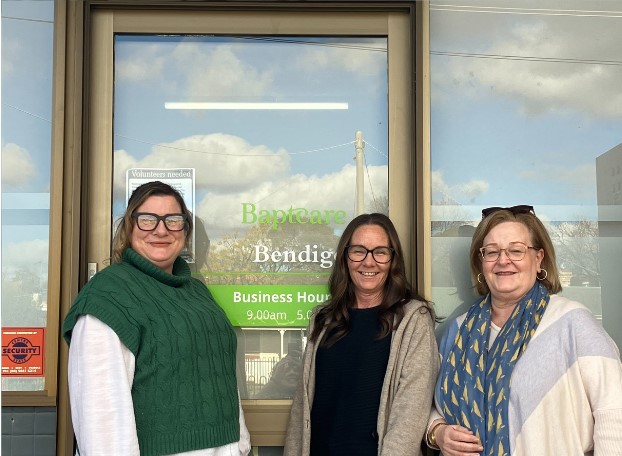How Baptcare is supporting mental health in Tasmania
- 05 Oct 2023

Mental health is a vital aspect of well-being. Statistics show that one in eight people around the world are living with a mental disorder, with anxiety and depressive disorders being the most common. In Australia, more than 40 percent of Australians aged 16–85 are estimated to have experienced a mental disorder at some time in their life.
For people living with mental health conditions, especially those who are vulnerable and marginalised, having access to quality and holistic care is essential. Which is why Baptcare has developed a range of innovative and evidence-based programs to support people with mental health needs.
What is Mindset Tasmania?
Mindset Tasmania delivers psychosocial services to build people’s capacity to improve their mental health and make progress towards their recovery. Our programs work with adults experiencing severe and persistent or episodic mental health conditions, as well as people who are transitioning from hospital to community settings. Mindset Tasmania employs mental health practitioners and peer practitioners who use person-centred and strengths-based approaches to help clients identify their goals and remove barriers to living the life they want to lead.
Mindset Tasmania offers three main programs: Foundations, Choices and Horizons.
Foundations is a state-wide, nationally accredited, intensive psychosocial recovery-based program run by Baptcare in partnership with the Department of Health and Human Services. It provides medium-term support for clients with complex needs.
“The Foundations program is wonderful and they support the clients so well, unlike any other program. When Foundations was in its early stages we thought here is another program, how long will it last and will it deliver? We are so pleased to say that the program is great and the clients are so well supported once they leave our facility.” – Mental Health Services Case Manager, North Tasmania.
Choices is a short-term, intensive outreach service operating in partnership with the Royal Hobart Hospital. The aim of this program is to assist people in the community following discharge from inpatient services or other mental health residential or respite accommodation. Choices is targeted at reducing the need for re-admission to in-patient care and provides transitional accommodation when necessary.
“Choices helped me sort out my housing problems and helped me with my medications.” – Choices participant.
Horizons is a short-term, intensive service that aims to equip clients with the strategies, skills and resources they need to work towards individual goals for their personal recovery. Individual, client-led support can be provided for up to 26 weeks.
How does Baptcare ensure best practice support?
The work we are doing with our Mindset Tasmania programs has been validated through independent research by the Monash Centre for Health Research and Implementation, Monash University. This ensures our programs are of consistently high quality, accessible and tailored to the specific needs of some of the most vulnerable people in our community.
Baptcare is committed to providing accessible, relevant and pragmatic support and care to people with mental health needs. By using research to continuously measure, refine and develop our services, we ensure that our programs are grounded in best practice and deliver on our vision to create communities where every person is cherished.
How to contact us
If you are living in Tasmania and interested to know more about our Mindset programs, please contact us today on 1800 290 666.
Community news
-

Team Spotlight: Home Start, Mother Goose and Supported Playgroup Team in Bendigo
Baptcare runs the Home-Start, Supported Playgroup, and Parent-Child Mother Goose Programs in Bendigo. Jane, Home-Start Team Leader; Angie, Group Facilitator, Mother Goose Program and Supported Playgroup; and Jess, Group Facilitator, Mother Goose Program and Supported Playgroup, are our wonderful team members, dedicated to helping families and connecting them with strong support within the local Bendigo and Macedon Ranges communities. Keep reading to learn more about these exceptional employees, their work, and why they love what they do.
- 30 Jan 2026
-

Staff Spotlight | Lois Yamuta – Project Lead, Living Well Together
What inspired you to work in aged care and how did you come to lead the ‘Living Well Together’ program? My career in aged care started in New Zealand. I was studying Healthcare Management, where I was also introduced to aged care nursing, and the rest is history!
- 28 Jan 2026
-

Staff Spotlight | Belinda Evans – Baptcare Scholarship Winner
At Baptcare, we believe that investing in our people is the key to our shared success. That’s why we’re proud to offer the Baptcare Scholarship Program, providing up to $2,500 to support permanent employees, both full-time and part-time, in pursuing further education and professional growth.
- 27 Jan 2026
